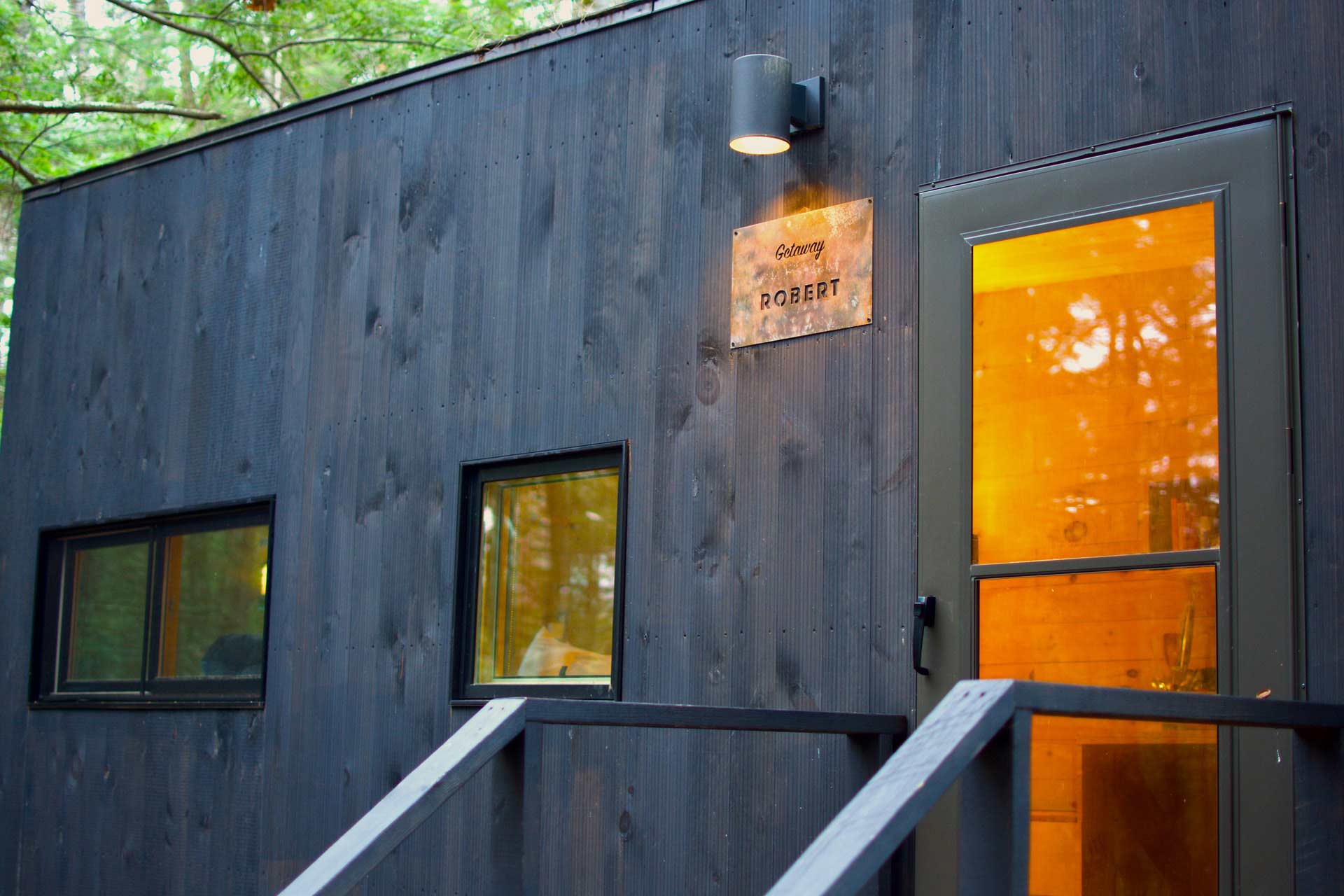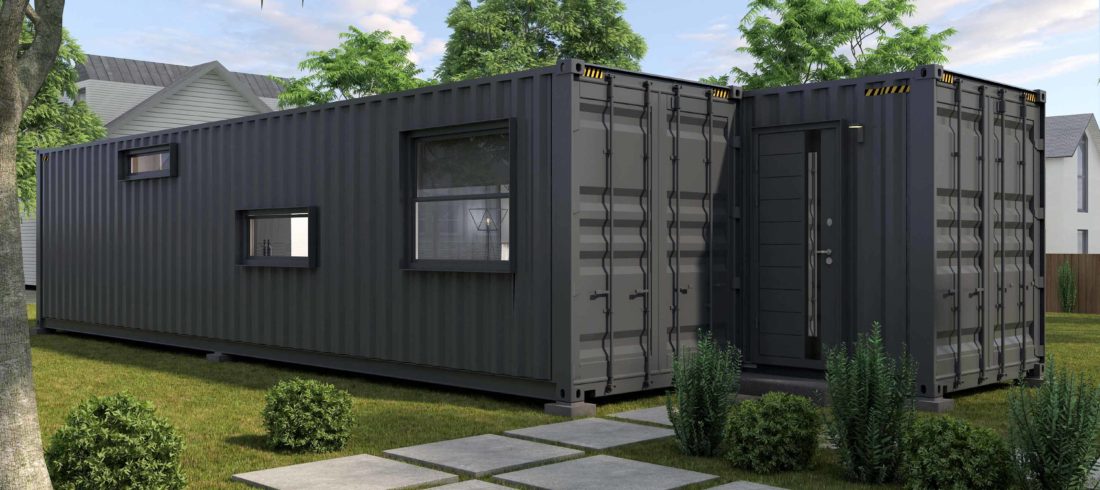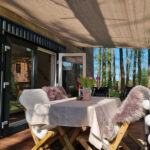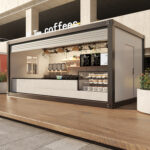For decades, modular homes have been seen as a potential ‘home for the future’. With the financial impact of the COVID-19 pandemic still affecting people of all ages in the UK, and with the housing crisis seemingly growing — now could truly be the time for modular houses to go from a sound concept for small projects, to a legitimately viable alternative to traditional homes.
The idea of modular homes has been around since the 19th century when manufacturers began selling kit-homes. The concept experienced peaks and troughs as people’s economic situation fluctuated throughout the 20th century. However, ultimately, the idea of prefabricated homes never truly took off as a genuinely viable alternative. That is, until now.
What is a Modular House?
A modular house, or prefabricated (prefab) house is a form of housing that instead of being constructed on site, is assembled piece by piece in a specialist facility. Once the modules are all finished it is transported to the location where it will be installed. It is essentially like a LEGO building on a much larger scale.
Despite the common misconception, a modular house is not necessarily, by any means, a tiny home — they can come in all manner of different shapes, sizes, layouts etc. and can often be indistinguishable in size and appearance to some traditional housing.
The idea of modular housing stems from the fact that so much of our society is prefabricated before delivery in one unit, so why not homes? If given the option I imagine you would prefer a car to be delivered to you on completion rather than be slowly built on your drive over the course of months.
When the concept experienced its peak period of popularity in the early-mid 20th century there were little to no regulations to the standard of the homes. However, nowadays all modular homes are built to the exact same stringent codes and legislations as a traditional brick and mortar home to ensure safety.
Benefits of Modular Build Houses
Modern modular build houses are far more developed than their predecessors. They are modernised, with significantly shorter build-times and more sustainable factors considered from start to finish. A modular build home comes with a wide array of benefits for you, society at large, and the future of the planet.
Personal Benefits
A modular house represents a more flexible way of life for anybody looking to purchase a stunning home, with less of the complications and stresses that can come with buying a new property:
- Affordability: With the housing crisis not seeming to be going anywhere; people are struggling to get onto the property ladder. Modular build houses can offer a more affordable and much more accessible route for these first-time buyers to own a dream home.
- Speedy: On average, a modular build house is constructed and installed up to 60% faster than a traditional home.
- Less Labour Needed: The build, construction, and installation require significantly less labour than would be required for a conventional home; saving both time and money.
- Quality Control: The purpose of mass production is to standardise and better control the quality of the product. This method of home building therefore makes production more efficient, more consistent, and allows for far better quality control.
Sustainable Benefits
Modular homes are widely a much greener choice than more traditional homes. The creeping effect of global warming on our planet and its environment means that eco-friendly factors must be considered when producing any new buildings:
- Energy Efficient: Every inch of a modular house made from shipping containers could save on energy costs, while also reducing your carbon footprint. Due to the relatively small size of the structure, and the large windows, it is much easier to heat, and this heat is retained much better, not to mention cheaper.
- Sustainable Materials: Modular homes are often constructed with materials such as sustainable timber at the heart of the process. For example, should you opt to have a shipping container modular home, repurposing an old container would remove the necessity for newer resources and limit Co2 use, while preventing the container degrading and damaging the environment.
- Sustainable Electricity: Reportedly, only around 20% of the UK’s electrical supply comes from green sources. A modular home can allow you to do your part to add to this statistic. A sustainable source of electricity such as solar or wind power can easily be factored into the design, allowing you to get off the grid.
- Less impact to Environment: The production of each module is done more efficiently; with significantly less waste and impact to the environment when done in a factory setting, going some way towards helping you achieve carbon neutrality. The installation will also cause less disruption to the environment around the site.
Societal Benefits
The positives that come with modular housing are not limited just to the buyer and the environment, there are also wider potential benefits for the wider society; prefab houses can aid the UK housing crisis, improve worker conditions in the industry, and more:
- First Time Buyers: Finding affordable housing for first-time buyers is one of the great issues we are facing in this country. If young people can’t afford to get onto the property ladder then the ladder will eventually collapse. Modular houses are often cheaper than traditional homes, and most financiers are happy to offer loans for them.
- Housing Crisis: Britain is faced with a housing shortage, factory built modular houses can provide a way to address some of the causes of said issue. The speed of construction, paired with the need for fewer skilled workers during construction can help to ease some of the burden that the housing market currently faces.
Better for Workers: Not only can modular houses benefit the buyer, they can also be a much better environment for the workers. A factory setting is a much more comfortable working condition than being outdoors, constantly open to the elements. A happy, healthy employee will do better work, benefiting all parties.
Infinite Possibilities
The weight of societal pressure, financial stresses (particularly post-pandemic), environmental factors, and more have ensured that many Brits do not feel like they are in the position to buy a home. With up to 13 million Brits currently renting, that’s a lot of people in need of a viable alternative to traditional homeownership.
More affordable, faster, better for the environment, and even better for the workers. There are a whole host of potential benefits, and infinite possibilities when it comes to modular houses, all we need to do is make the leap.
If you can see the potential in the idea, and want to learn more, get in touch with a member of our team to find out more about what we can do to help design the space of your dreams.









